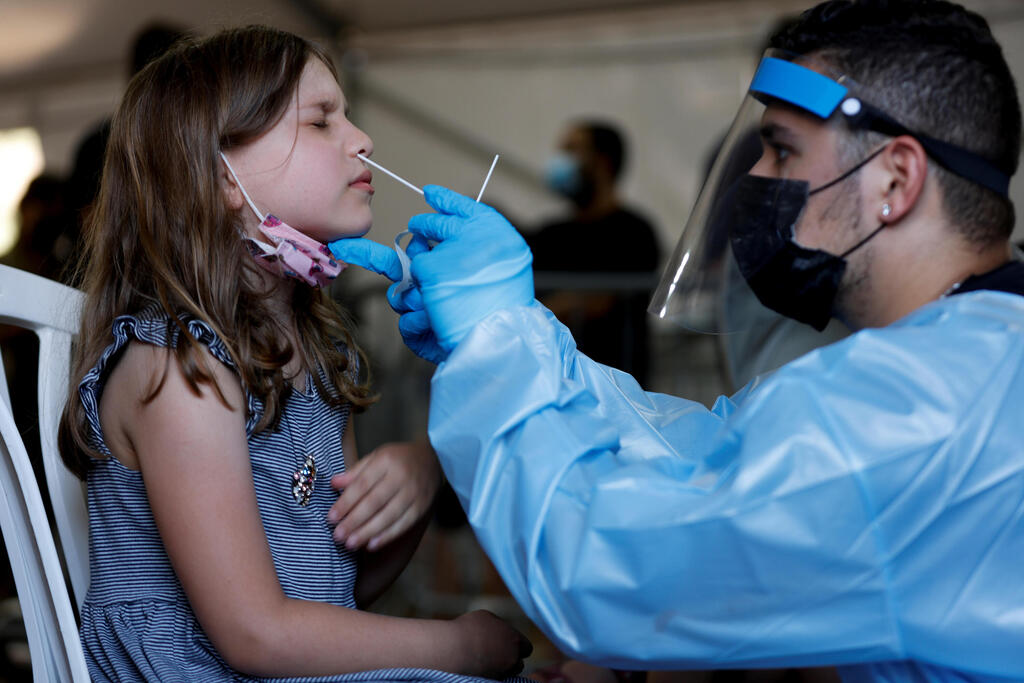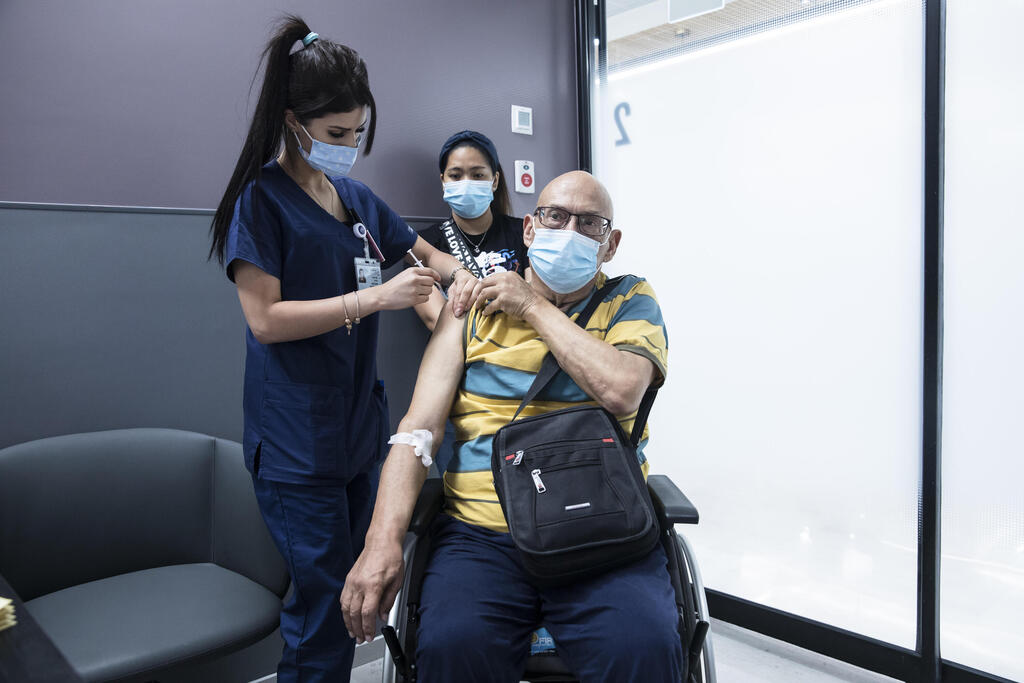Israel's ongoing coronavirus infections resurge has passed a critical point over the past few days as the number of COVID-19 patients in serious condition climbed from 60 last week to 145 as of Tuesday evening.
The number of daily cases passed the 2,000 mark. The number of patients on ventilators is still relatively low but has doubled over the past week.
4 View gallery


A child being tested for coronavirus at a testing facility in Tel Aviv
(Photo: Reuters)
The only nation Israel could look up to for guidance is the UK, which also went through a steep rise in infections, but the number of hospitalizations and serious cases stayed stable.
Unfortunately, according to preliminary data — which many hope will change — Israel's diagnoses-to-hospitalizations and serious cases ratio is worse than the UK's.
An expert report published Tuesday by Jerusalem's Hebrew University shows that while the Pfizer vaccine is still 91% effective in preventing mortality, protection against serious illness dropped to some 80%.
The pharmaceutical giant's clinical trials put that number at well over 90% — a figure which directed Israel's coronavirus response over the past weeks.
As for protection against infections in general, the Health Ministry last week published data showing it had collapsed to around 40%.
4 View gallery


An elderly man receives his coronavirus vaccine booster shot at Sheba Medical Center
(Photo: Gettyimages)
Many experts, however, argue that these results are impossible and merely the result of faulty methodology considering Israel is the only country in the world to boast such low effectiveness.
Such abysmal data could be explained in two ways: either their calculations were wrong considering the still low number of patients, or that the vaccine is losing its efficacy over time or specifically when it comes to the Delta variant.
This complicated state of affairs demands the government to take immediate and decisive actions.
So far, Israel's leaders have opted for the "British Model," where they allowed day-to-day life to continue as usual despite the rise in cases.
One can see why Israel chose to go down this path: the impressive decline in cases the UK has seen, which began several days after Freedom Day when the Brits undid nearly all public health restrictions.
4 View gallery


A bartender pours a pint of beer at the Prince of Peckham pub, as it reopens to indoor customers, in London
(Photo: AP)
Did they reach herd immunity through the vaccine (and also through those who recovered from the virus), even against the Delta variant? Perhaps. But it may be a temporary respite. As has become the norm over the past year and a half, prophecies and predictions are a dangerous matter.
So, what is the difference between Israel and the UK?
First, our vaccines are different, supposedly more "high quality."
In addition, the Brits have decided to significantly extend the period between the first and second mandatory vaccine shots.
In other words: If there is a gradual loss of immunity, their chances of being hurt by it are far lower than Israel who choose to rapidly give both shots to the elderly population over six months ago, in accordance with Pfizer's recommendations.
As usual, the school year has again become a wedge issue. The health and education ministries are expected to reach a compromise on a 72-hour quarantine period for elementary school students who have been exposed to a confirmed patient on top of routine testing to quickly allow the children back to school.
Local authorities will be given great power to manage local outbreaks. Will that be enough? We cannot be sure.
Education Minister Yifat Shasha-Bitton did not fear criticizing Prime Minister Naftali Bennett's moves on live TV as he attempts to push vaccine refusers to get inoculated.
Health officials feel that Shasha-Bitton will continue to oppose experts' recommendations even if they do end up striking an agreement.
A failure to open the school year on September 1 would deal a severe blow to the government's credibility, one which former prime minister Benjamin Netanyahu's cabinet never recovered from.


